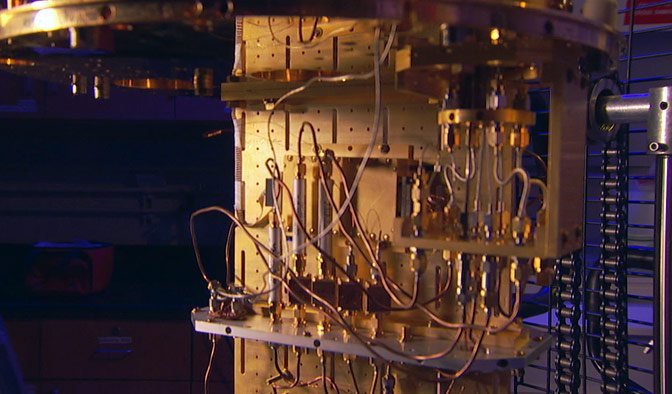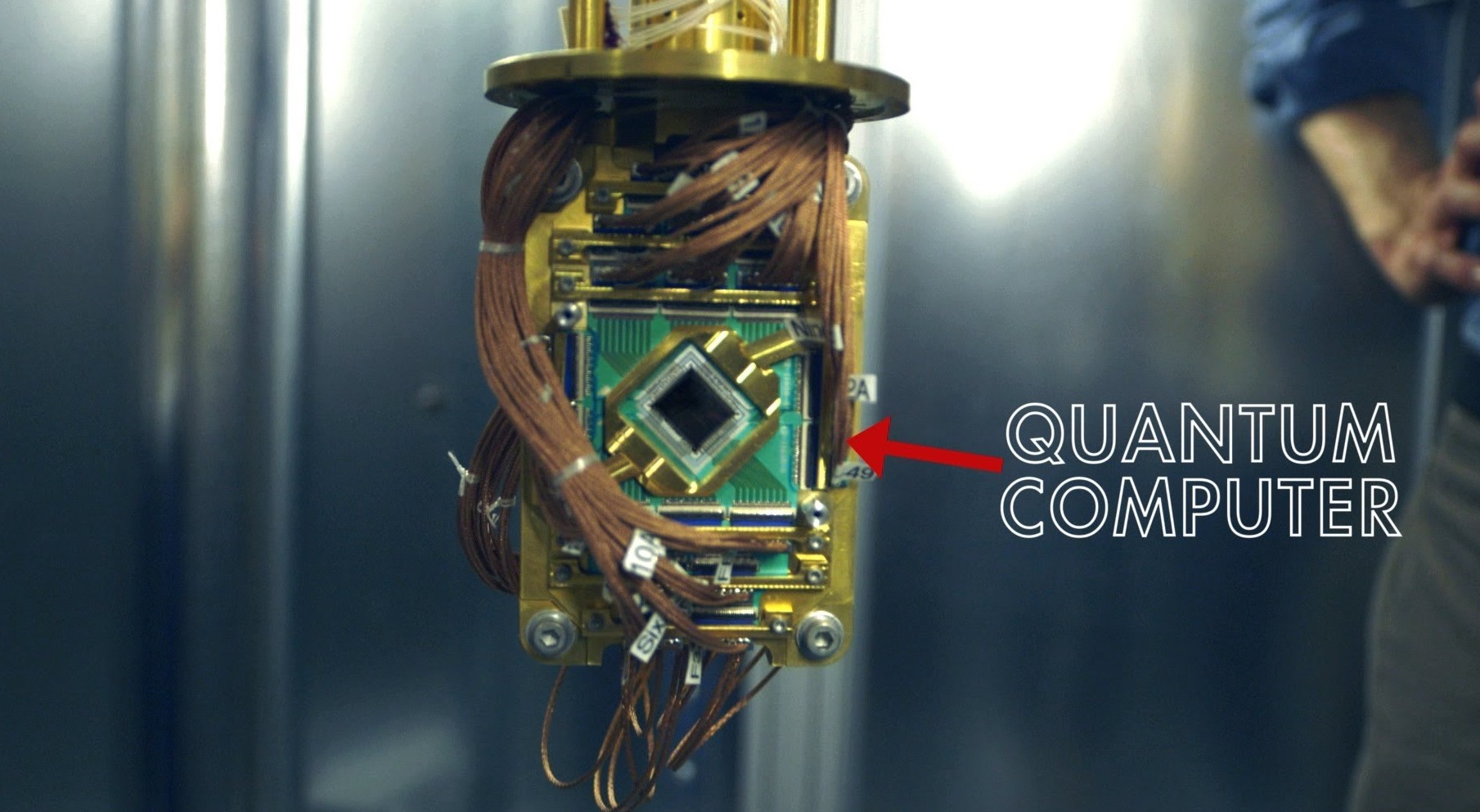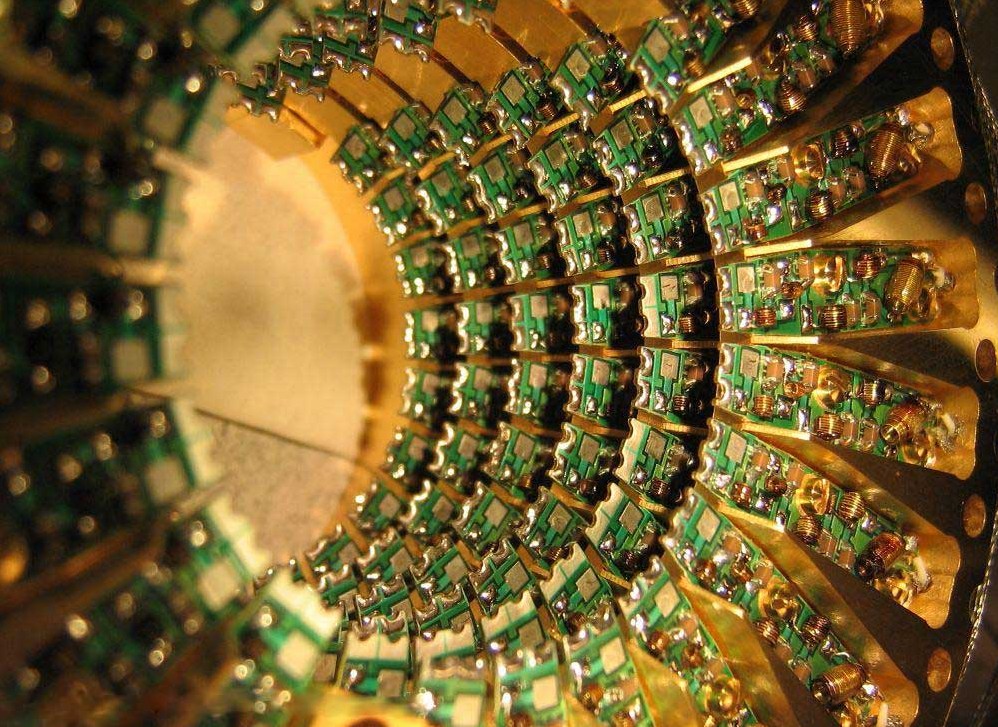[dropcap size=small]T[/dropcap]he fuzzy uncertainty of [highlight ]quantum mechanics[/highlight] has many sorts of potential applications. This time it’s Computers. Our thirst for speed and computing has tremendously increased in past few decades and I think the computer manufacturers are not yet able to quench it. Now let’s imagine a computer which is so powerful that it can instantly solve problems that require a thousand years to solve by the best of our supercomputers today. These computers might not exist today but in next few decades, they might become reality. According to Moore’s law, every 2 years the number of transistors in our microprocessors get doubled; this means that [highlight ]by the year 2030, the circuits on a microprocessor might be measured on an Atomic Scale.[/highlight] So the next leap in computing would be the quantum computers. Prototypes of such computers are currently in operation at MIT (Massachusetts Institute of Technology).

Traditional computers today store information in form of a bit. A Bit can either be 0 or 1. All the calculations in a computer are done by just flipping these 0’s and 1’s. It’s just that if a bunch of electrons are flowing through a circuit, it is a 1 and if not, it is a 0. So at an instant of time, a bit can either be a 0 or a 1.
In case of a quantum computer, we call them Qubits. But, a Qubit behaves somewhat different than a traditional bit. A Qubit can effectively register a 0 and a 1 simultaneously. Now the question arises how?
In a quantum computer, a Qubit is stored in an electron or any sort of particle which shows quantum nature, like an atom. Now an electron has a funny behaviour in quantum mechanics i.e. it actually behaves like a wave and a wave can be both here and there at the same time. Therefore, [highlight ]a Qubit that an electron represents registers itself as a 0 and a 1 at the same time.[/highlight] So, if we are able to control a Qubit the way we handle an ordinary bit, we can make this magical machine a reality.
[toggler title=”How can a Quantum Computer help us solve problems?” ]Imagine you are trapped in a maze and you just want a right way to get out but here problem is that there are so many different ways and what you can do is just try them out, one at a time. This is how our traditional computers solve problems. But they do it so quickly that it doesn’t matter much. But if the maze is very large; so large that it has millions or even billions of different ways, the time required would be much more. But if you can try all the different possibilities at once, it would be a different story. That’s what a quantum computer does. Since particles can be at more than one place at once, the computer can investigate more number of paths at the same time and find the correct one in a snap.[/toggler]

Credits – Google and Nasa
By using a quantum computer we can solve problems that require enormous amount of calculations like predicting the weather in advance. [highlight ]We might be able to predict the natural disasters like earthquakes or hurricanes.[/highlight] To solve these kind of problems today, we require huge computers and large amount of time but a quantum computer can get the job done with just a bunch of atoms. That means [highlight ]its brain would be smaller than a grain of sand.[/highlight]




